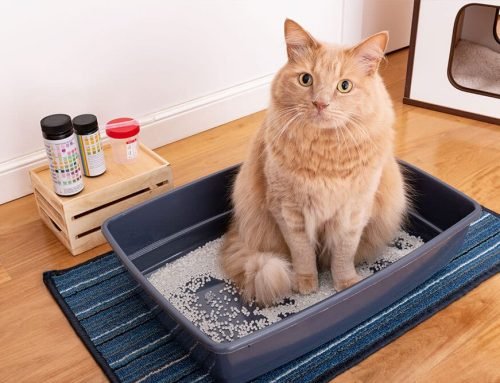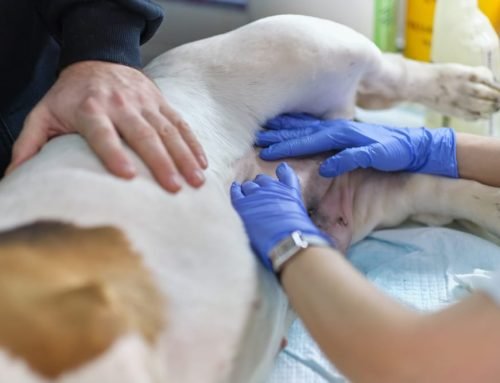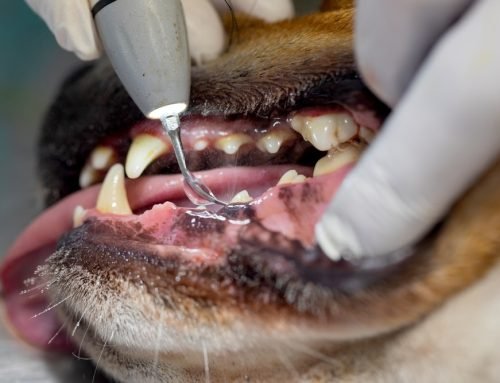Senior Pet Slowing Down? It Could Be Pain- Not Just Age
As pets age, the changes go beyond gray muzzles and slower steps. Senior dogs and cats often experience shifts in mobility, behavior, and appetite. While it’s easy to chalk these changes up to “just getting older,” many are actually signs of chronic pain. When left unrecognized or untreated, that discomfort can quietly erode a pet’s quality of life- and impact the bond they share with their family.
Because the signs of chronic pain can be subtle, they’re often mistaken for normal aging. But with the right awareness and care, many pets experience a remarkable improvement in comfort, energy, and overall well-being.
Why Pain in Senior Pets Is So Often Overlooked
Animals instinctively hide pain. In the wild, showing weakness could make them vulnerable. Even in a loving home, pets tend to adapt by changing behaviors rather than showing obvious distress.
For instance, a dog who stops jumping onto the couch may be seen as “slowing down.” A cat who starts missing the litter box or grooms less might be assumed to have cognitive decline. But often, these behaviors point to chronic discomfort- whether it’s musculoskeletal pain, dental disease, or another underlying condition.
Resources like What’s Wrong? Common Pet Pain Signs remind us that small behavior changes can be early indicators.
Signs of Chronic Pain in Senior Dogs and Cats
| Dogs | Cats |
| Slowing down on walks | Decreased grooming |
| Difficulty rising or lying down | Hiding or avoiding contact |
| Reluctance to jump or use stairs | Litter box changes |
| Limping or stiffness | Loss of interest in play |
| Whining, panting, or licking joints | Sleeping in unusual places |
Many pet owners struggle to tell the difference between natural aging and a medical issue. A good rule of thumb: if a pet has stopped doing things they once enjoyed, it’s worth a closer look.
The Senior Pet Care guidelines recommend more frequent veterinary visits for aging pets. These checkups can catch problems early and offer proactive solutions.
How Chronic Pain Impacts Daily Life
Pain doesn’t just slow pets down- it can affect how they interact with people, navigate their environment, and enjoy daily routines. Over time, untreated discomfort may lead to:
- Muscle loss and reduced strength
- Changes in weight
- Poor sleep
- Irritability, anxiety, or withdrawal
- Less interest in food, toys, or attention
In cats especially, chronic oral pain from dental disease is a frequent culprit. Conditions like tooth resorption can be intensely painful- even when the mouth looks normal. That’s why regular dental exams and cleanings, like those at St. Petersburg Animal Hospital & Urgent Care, are so important.
Beyond physical symptoms, chronic pain can affect a pet’s emotional health. A dog who can’t move comfortably may become less social. A cat in pain might isolate entirely. But with the right care, that spark often returns.
What Causes Chronic Pain in Senior Pets?
Pain can come from many sources, and in older pets, these issues often develop gradually. Common causes include:
- Osteoarthritis – Inflammation and cartilage loss cause stiffness and limited mobility.
- Dental disease – Infections, fractures, and resorptive lesions create ongoing oral pain.
- Spinal conditions – Problems like disc disease or spondylosis are common in senior dogs.
- Cancer – Tumors, especially in bones or organs, can be a significant source of pain.
- Chronic infections/inflammation – Issues like persistent ear infections or pancreatitis can become painful over time.
Cognitive changes can also complicate the picture. For example, Cognitive Dysfunction Syndrome may mask or mimic pain, making diagnosis more challenging.
How Veterinarians Diagnose Pain
At St. Petersburg Animal Hospital & Urgent Care, evaluating pain starts with a thorough physical exam. Depending on the pet’s symptoms, additional diagnostics may be recommended.
These might include:
- Orthopedic assessments and range-of-motion tests
- Full-mouth dental x-rays
- Bloodwork and urinalysis
- Imaging like X-rays or ultrasound
- Pain scoring tools
For senior pets, routine preventive testing becomes especially valuable. Catching problems early often makes them easier- and less costly- to treat.
Treatment Options: Relieving Pain and Restoring Comfort
Managing chronic pain usually requires a multimodal approach- combining medical, physical, and lifestyle strategies tailored to each pet.
Treatment options may include:
- Anti-inflammatories to reduce pain and swelling
- Joint supplements like omega-3s, glucosamine, and chondroitin, which support joint health
- Dental procedures to treat or extract painful teeth
- Surgery, such as for ligament repair or spinal issues- see our surgery services for more
- Rehab and gentle exercise, including low-impact activities to maintain strength and mobility
- Other pain medications, like gabapentin, Librela, Solensia, and other pharmaceutical options
- Integrative therapies, like laser, acupuncture, and massage
Environmental changes also go a long way. An arthritis-friendly home with non-slip rugs, ramps, and cozy bedding can ease daily strain. Assistive devices like harnesses or carts may further improve mobility and independence.

FAQs: Chronic Pain in Senior Pets
Is limping always caused by arthritis?
Not always. Limping could indicate soft tissue injuries, spinal problems, or nerve pain. A veterinary exam is key.
Can cats get arthritis too?
Yes- and it’s often underdiagnosed. Look for changes like reluctance to jump, stiffness, or litter box issues.
What if my pet’s current meds don’t seem to work?
Pain management should be customized. If something’s not working, there are often alternative options to explore.
Is it safe to give my pet human painkillers?
No. Medications like ibuprofen or acetaminophen can be toxic to pets. Always consult your vet first.
How do I know when it’s time to consider euthanasia?
It’s a deeply personal choice. Quality of life evaluations and open conversations with your veterinary team can help you make the decision with confidence and compassion.
Pain management is not a one-time fix. It requires ongoing attention, communication, and flexibility. As pets age or conditions change, treatments may need to be adjusted.
Supporting Your Senior Pet offers recommendations for continued care, including pain check-ins, medication reviews, and mobility evaluations.
The Difference Pain Relief Can Make
At St. Petersburg Animal Hospital & Urgent Care, our focus is on supporting every stage of your pet’s life- with compassion and collaboration. Whether through diagnostics, treatment, or palliative care, our team is here to help pets age comfortably and with dignity.
If you’ve noticed changes in your senior pet’s mobility, behavior, or mood, reach out to our team at St. Petersburg Animal Hospital & Urgent Care. We’re here to answer questions, provide support, and help your pet feel like themselves again.







Leave A Comment